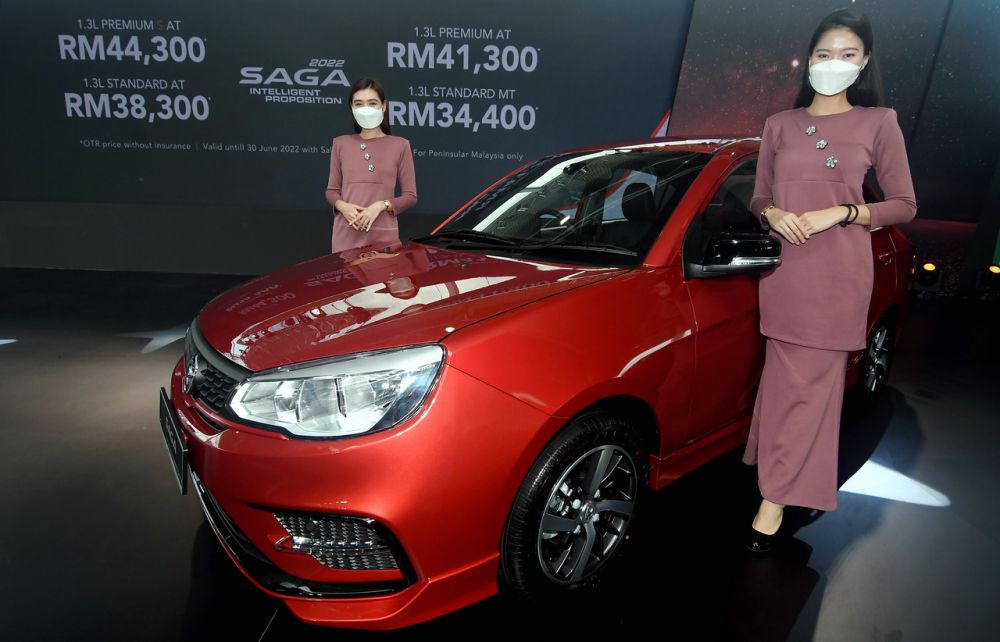SINGAPORE, July 3 — Drivers have welcomed a move to allow taxis and private-hire cars, such as Grab and Gojek vehicles, to record audio inside their vehicles. This is so that potential disputes with passengers can be settled more effectively.
However, going by early responses from passengers, they appear to be split on this: Some see no problem, while others feel the move could amount to an invasion of privacy.
For the past year, taxi and private-hire-car drivers, with the requisite approval, have been allowed to do video-recording inside the cars, but without sound, so that conversations are not recorded.
The Land Transport Authority (LTA) yesterday unveiled revised guidelines that will apply from July 15.
The audio recording devices can be fitted only with permission from the authority, and only if signs notifying passengers are placed inside the vehicle, among other requirements.
In its media release, the LTA said that once audio recordings are allowed, recordings with both video and audio will be “more effective in supporting investigations into inappropriate or violent behaviour as well as fare-related disputes”.
‘Nightmare’ over possible passenger dispute
Grab driver Gabriel Tan, 38, told TODAY that he has not yet been involved in a serious dispute with a passenger, but he has heard of horror stories from other private-hire drivers.
“It’s my biggest nightmare to pick up an unreasonable passenger and have no means of providing evidence if they lodge a complaint with Grab,” he said.
In January this year, a video of a disagreement between Gojek driver Kamaruzzaman Abdul Latiff and a passenger over Electronic Road Pricing charges — which escalated into an angry row — went viral, sparking outrage among online users.
It also triggered discussions on whether the driver had flouted privacy guidelines by recording the argument and posting the clip on social media.
In its media release yesterday, the LTA stressed that even with the change, drivers must not make audio or video recording in their cars using unauthorised devices such as mobile phones.
‘Not justified’
A regular user of taxis and private-hire cars, Lo Kit Yan, 32, told TODAY that she has reservations about the change.
“I think we can all understand how recordings would help in certain situations — such as abuse or arguments,” Lo, who works in finance, said.
“But personally, I don’t think it justifies that level of invasion of privacy. A cab (or private-hire vehicle), despite being a mode of quasi-public transport, can also be a very personal ride.”
On the other hand, Lucas Chiam, 36, an educator, is positive about the change.
“I have no problems (if the driver has an audio recorder). I don’t remember a case where I had a super private conversation in the car with the driver around,” he said.
“An audio recording will help prevent an awkward situation between the passenger and driver (from arising). I’m fine about it as long as the passenger is informed beforehand.”
Echoing his views, digital media planner Chan Gent Ho said it was “unavoidable” that the authorities made this move. The 33-year-old said he is not against it because it allows for “fair reporting from both sides”.
“My dad used to drive a taxi, and the horror stories he used to tell me about customers… (I think) technology like this would’ve been handy for him to protect himself at the time.”
The previous ban on any audio recording inside taxis and private-hire cars had been designed to ensure that commuters’ conversations were not recorded.
In explaining the change, the LTA referred to a poll by the Government’s feedback unit, Reach, which asked 1,000 Singaporeans about the issue.
The online survey, done in March this year, found that nine in 10 people felt that recording devices could “help protect the interests of both commuters and drivers”.
Among those who agreed that such devices should be allowed in taxis and private-hire vehicles, around nine in 10 said that both audio and video recordings should be allowed.
Under the revised guidelines, taxi operators and private-hire drivers are still required to get LTA’s permission to install these devices, and they must be set up at authorised installation centres.
Only authorised personnel can access recordings
The LTA also said that “only authorised personnel in relevant government agencies and LTA-authorised data controllers” are allowed access to the recordings to support investigation and enforcement efforts.
Drivers must notify their passengers that the devices have been installed in their vehicles by displaying signs or decals informing them of their presence.
Passengers who pre-book a ride should also be notified in advance if a vehicle with a recording device is dispatched to them, the LTA said.
Buses also fall under the category of public service vehicles, but the LTA said that they will now be exempted from the guidelines as they are “similar to public spaces and are shared by many passengers”.
The LTA stressed that bus operators will still be subject to the advisory guidelines of the Personal Data Protection Commission (PDPC).
Revised guidelines a ‘safeguard’
Another Gojek driver, Alson Ng, 49, told TODAY that the revised guidelines will be good for private-hire drivers such as himself, to help “safeguard” them in the event an unpleasant situation involving a passenger.
“Some nasty passengers will just come up and use vulgar words (on me). If we don’t have all these recordings, we won’t have any evidence to protect ourselves,” he added.
Responding to queries from TODAY, Tammy Tan, group chief communications officer of taxi operator ComfortDelGro, said that the firm is “cognisant of the need” to balance concern for their taxi drivers’ safety with the need to respect their passengers’ privacy.
“We are currently reviewing the changes to the guidelines and will work with our drivers to best look after their interests,” she said.
The company is one of Singapore’s major public transport operators which also handles SBS Transit, CityCab and the ComfortDelGro taxi fleet. — TODAY






















